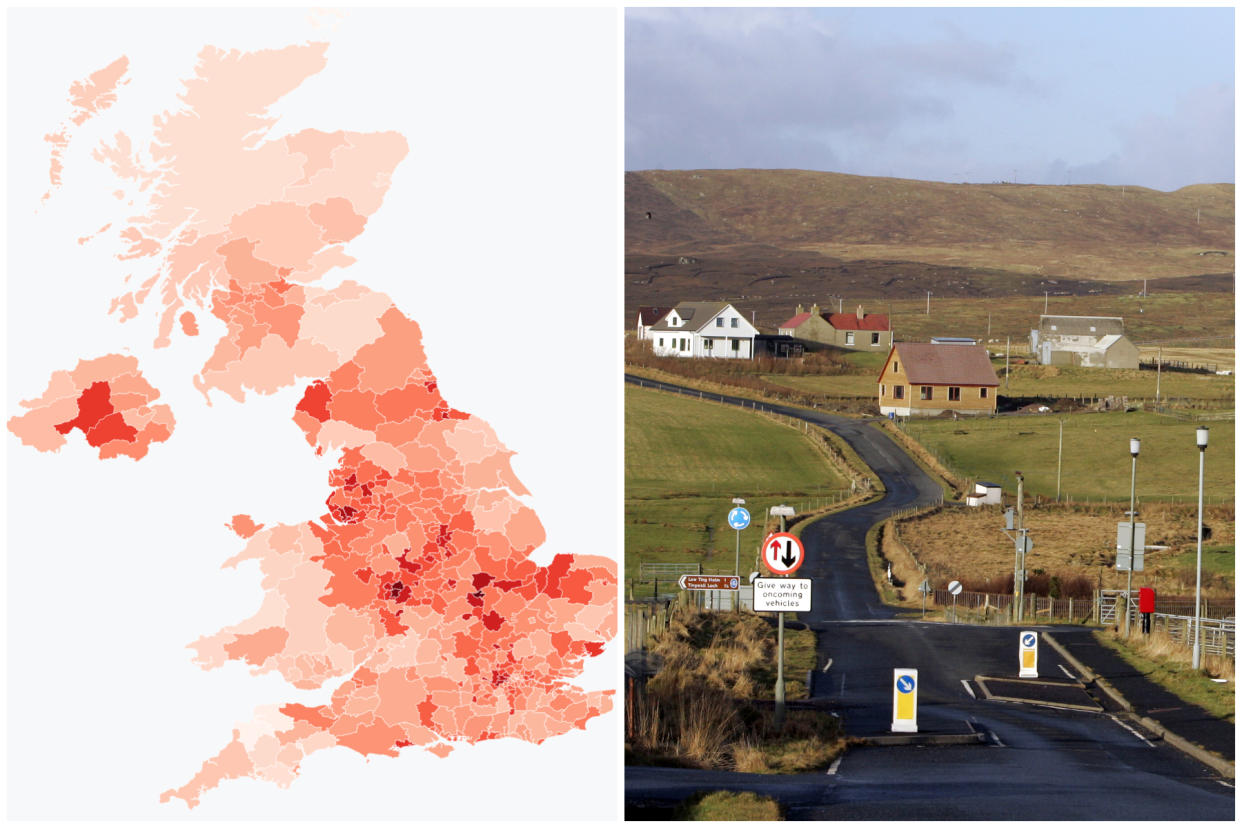The UK area with no new Covid cases last week

The Shetland Islands in Scotland had no new coronavirus cases in the last seven days for which data is available.
The government’s latest rolling figures, for the seven days up to 3 February, also show the Shetland Islands were one of five areas with an infection rate of less than 50 cases per 100,000 people.
The others were the Orkney Islands (4.5), Torridge (14.6), North Devon (25.7) and Exeter (35.8).
At the beginning of the pandemic in spring last year, the Shetland Islands had one of the highest infection rates in the UK, but managed to control the spread of the virus by locking down before directed to do so by national governments.
To this day, it has the third-lowest infection rate per 100,000 over the entire pandemic, at 920.6. The Orkney Islands has the lowest at 282.9.
Meanwhile, the latest government figures for the seven days up to 3 February show the area with the highest case rate is Corby, with 468 per 100,000.
Corby was followed by Walsall (449.4), Sandwell (447.9), St Helens (397) and Knowsley (390.4).
This interactive map shows how many new Covid-19 cases per 100,000 people there were in your area.
It came as Boris Johnson said he is “very confident” in the coronavirus vaccines after concerns were raised that the Oxford/AstraZeneca jab may be less effective against the South African variant.
But the prime minister did not rule out the strain could delay the relaxation of lockdown restriction, instead insisting he has “no doubt that vaccines generally are going to offer a way out”.
Experts warned on Monday it is “very possible” the strain is already quite widespread in the UK after a study of around 2,000 people suggested the Oxford jab only offers minimal protection against mild disease of the South Africa variant.
Watch: Boris Johnson insists vaccines provide 'high degree of protection'
The study, due to the young age of participants, could not conclude whether the vaccine worked against severe disease.
Some 147 cases of the South African variant have so far been identified in the UK, with experts warning these are likely to be the “tip of the iceberg” due to the fact they are the result of random checks on 5% to 10% of all positive tests.
During a visit to a coronavirus test manufacturing facility in Derby, Johnson told reporters: “We’re very confident in all the vaccines that we’re using.
“And I think it’s important for people to bear in mind that all of them, we think, are effective in delivering a high degree of protection against serious illness and death, which is the most important thing.”
Earlier Dr Mike Tildesley, a scientist advising the government, warned that restrictions may be needed for longer if the South African variant does turn out to be prevalent in the UK.
Johnson did not rule out that there could be a delay to easing restrictions if the Oxford/AstraZeneca has a reduced effect on preventing infections, and therefore on hindering the transmission of Covid-19.
But he said: “They remain of massive benefit to our country and to the population as we go through the pandemic and I’ve no doubt that vaccines generally are going to offer a way out.
“With every day that goes by, you can see that medicine is slowly getting the upper hand over the disease.”
Watch: What you can and can't do during England's third national lockdown


